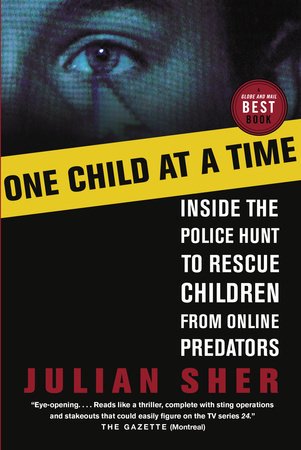resources for keeping your chilDren safe online
The internet is like any other community: some neighbourhoods are safe for children, others are not. Most people are friendly, but some are dangerous.
You can't keep your child locked up in the house and off the streets forever and you can't keep your child off the web. All you can do is arm them with the skills and tools they will need to protect themselves. But communication is frighteningly lacking. A survey by I-SAFE, a non-profit foundation in America, found a frightening discrepancy in how parents and children perceive their web activity. Sixty nine percent of parents said they knew a lot about what their kids do online, but 41 percent of children insisted they don't tell their parents about their web habits. A confident 87 percent of parents proudly said they had set firm rules for their children's online life - but 36 percent of children insisted they had no rules about web use. Indeed, 29 percent of children admitted their parents would not approve of their internet activities -- if they knew. [Excerpted from One Child at Time]
CHILD PREDATORS: MYTHS AND MEDIA
Download a PDF version of a slideshow presented by Julian Sher to a symposium at Toronto Metropolitan University on “Child Sex Trafficking and Online Sexual Exploitation: The Way Forward - A Shared Responsibility Symposium” in June 2024
TIPS FOR PARENTS:
The U.K.'s CEOP offers these top tips for parents:
Know what your children are doing online and who they are talking to. Ask them to teach you to use any applications you have never used.
Help your children to understand that they should never give out personal details to online friends
Help your child to understand that some people lie online. They should never meet up with any strangers without an adult they trust.
Always keep communication open for a child to know that it's never too late to tell someone if something makes them feel uncomfortable.
Teach young people how to block someone online and report them if they feel uncomfortable.
TIPS FOR CHILDREN AND TEENS:
Netsmartz -- one of the best safety sites on the web -- offers these three simple but important rules for online safety:
I will tell an adult I trust if anything makes me feel scared, uncomfortable or confused
I will ask my parents or guardian before sharing my personal information
I won't meet in person with anyone I have first "met" online
TO REPORT ABUSE:
UNITED STATES: National Center for Missing and Exploited Children
CANADA: Cybertip.ca
U.K.: Child Exploitation and Online Protection (personal abuse)
Internet Watch Foundation - IWF (Abusive content)
web educational resources:
Canada:
US:
UK:
________________________________________
PSAs - Web Public Safety Advertisements:
Luring: The dangers of making 'friends' online:
I thought I knew - For Girls - UK (A teen girl finds out the dangers of web luring)
I thought I knew - For Boys - UK (A teen boy finds out the dangers of web luring)
Consequences -UK (A teen boy explains the risks of posting explicit pictures)
Amy's Story - US (Based on a true story)Julie's Story - US (Based on a true story)Sexting:
Sarah's Story - US (A teen girl sees the dangers of sexting)
Your Phone Fate - Excellent Interactive Video
Megan's Story - US (A teen girl sees the dangers of sexting)
Dangers of Sexting - US (An instructional video)Bullying:


